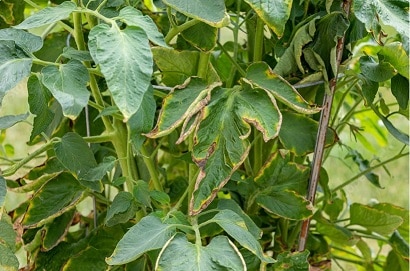
Building a food secured Africa

Building a food secured Africa

Fungi can be a major problem for vegetable farmers, as they can cause crop loss and reduce the quality of produce. However, with proper identification and control measures, it is possible to keep fungal growth in check and protect your crop.
The first step in identifying and controlling fungi is to understand the different types of fungi that can affect vegetable crops. Some common types include powdery mildew, downy mildew, and various types of root and stem rot. Each type of fungus has its own unique characteristics and growth patterns, so it is important to familiarize yourself with the signs and symptoms of each.
Once you have identified the type of fungus affecting your crop, it is important to take steps to control its growth. One of the most effective ways to do this is through the use of fungicides. These chemicals can be applied to the foliage and soil to prevent fungal growth, and they can also be used to treat existing infections. However, it is important to use fungicides responsibly and only as needed, or according to the directions given by the producer, as overuse can lead to resistance in the fungus and can also harm beneficial insects and microorganisms in the soil.
Another important strategy for controlling fungal growth is to maintain good cultural practices on the farm. This includes providing adequate drainage, avoiding overcrowding, and ensuring proper irrigation. It is also important to rotate crops and avoid planting in the same spot year after year, as this can lead to the buildup of fungal spores in the soil.
Finally, it is essential to monitor the farm regularly and keep a record of fungal infections. This will help you identify patterns and trends and take appropriate action to control the problem before it becomes too severe.
In conclusion, fungi can be a major problem for vegetable farmers. By identifying the type of fungus, using fungicides responsibly, maintaining good cultural practices, and regularly monitoring the farm, farmers can keep fungal growth under control and protect their crop.